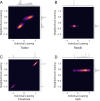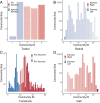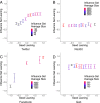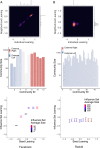The echo chamber effect on social media
- PMID: 33622786
- PMCID: PMC7936330
- DOI: 10.1073/pnas.2023301118
The echo chamber effect on social media
Abstract
Social media may limit the exposure to diverse perspectives and favor the formation of groups of like-minded users framing and reinforcing a shared narrative, that is, echo chambers. However, the interaction paradigms among users and feed algorithms greatly vary across social media platforms. This paper explores the key differences between the main social media platforms and how they are likely to influence information spreading and echo chambers' formation. We perform a comparative analysis of more than 100 million pieces of content concerning several controversial topics (e.g., gun control, vaccination, abortion) from Gab, Facebook, Reddit, and Twitter. We quantify echo chambers over social media by two main ingredients: 1) homophily in the interaction networks and 2) bias in the information diffusion toward like-minded peers. Our results show that the aggregation of users in homophilic clusters dominate online interactions on Facebook and Twitter. We conclude the paper by directly comparing news consumption on Facebook and Reddit, finding higher segregation on Facebook.
Keywords: echo chambers; information spreading; polarization; social media.
Copyright © 2021 the Author(s). Published by PNAS.
Conflict of interest statement
The authors declare no competing interest.
Figures




References
-
- Dubois E., Blank G., The echo chamber is overstated: The moderating effect of political interest and diverse media. Inf. Commun. Soc. 21, 729–745 (2018).
-
- Bode L., Political news in the news feed: Learning politics from social media. Mass Commun. Soc. 19, 24–48 (2016).
-
- Newman N., Fletcher R., Kalogeropoulos A., Nielsen R., “Reuters Institute Digital News Report 2019” (Rep. 2019, Reuters Institute for the Study of Journalism, 2019).
-
- Flaxman S., Goel S., Rao J. M., Filter bubbles, echo chambers, and online news consumption. Publ. Opin. Q. 80, 298–320 (2016).
MeSH terms
LinkOut - more resources
Full Text Sources
Other Literature Sources

